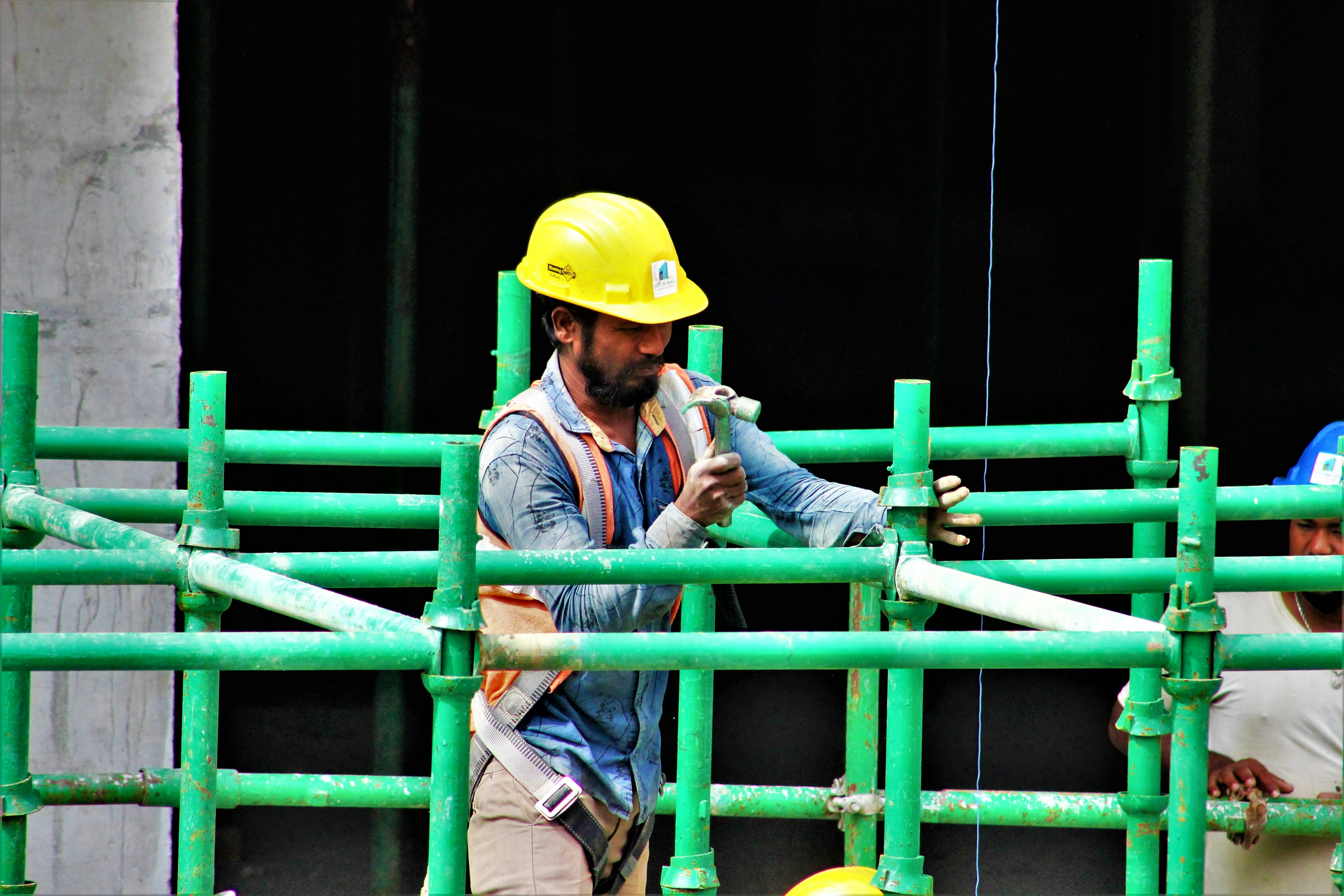Unearthing the hidden costs of building projects is anything but a walk in the park. As a construction project manager, you’re tasked with balancing the budget, meeting deadlines, and ensuring project safety, all while complying with local regulations. One aspect that can heavily influence these factors is the state of the ground upon which your project stands. That’s where a geotechnical survey comes in.
A geotechnical survey, often essential for construction projects, investigates the earth’s subsurface to determine its physical properties. It provides crucial data for designing foundations and identifying potential risks, such as landslides or soil instability, that could jeopardise your project.
However, the cost of these surveys can vary significantly depending on various factors. To help you navigate this complex landscape, we’ll delve deep into the cost factors of geotechnical surveys, providing a comprehensive understanding that will equip you to make informed decisions and optimise your project’s budget.

What is a Geotechnical Survey?
A geotechnical survey is a comprehensive assessment of the ground on which a structure is to be built. It uncovers vital information about a site’s soil and earth properties to ensure that the ground can safely support the proposed structure. This survey involves a series of intricate tests, including soil sampling, in-situ tests, and laboratory analyses. The findings are then compiled into a geotechnical report, which provides essential data about the soil’s physical and chemical characteristics and recommendations for site preparation, foundation design, and potential remedies for any foreseen issues.
These surveys conducted by professional geotechnical engineers are crucial to mitigating risks such as construction delays, spiralling project costs, and structural instability. The cost of a geotechnical survey can vary significantly based on factors like the project’s size and complexity, soil type and condition, testing depth requirements, site location and accessibility, and compliance with local regulations and standards.
In the following sections, we’ll delve deeper into these cost factors, providing you with a better understanding to make a well-informed decision for your project.
Factors Influencing the Cost of a Geotechnical Survey
A geotechnical survey’s price tag isn’t a one-size-fits-all figure. It can vary widely depending on several factors. An understanding of these variables can help you forecast your budget more accurately and avoid unexpected costs down the line.
Size and Complexity of the Project
The larger and more complex your construction project, the more extensive the geotechnical survey required. More extensive surveys often mean more soil samples, more testing, and deeper boreholes. All these factors contribute to a heftier price tag.
Soil Type and Condition
The type and condition of the soil on your construction site can significantly impact the cost of your geotechnical survey. Certain soil types, such as clay or silt, may require more comprehensive testing because of their unique properties. Similarly, poor soil conditions, like contamination or high water content, may necessitate additional tests, increasing the overall cost.
Required Depth of Soil Testing
The depth of soil testing required is another crucial cost factor. Deeper tests usually cost more as they involve more complex drilling techniques and equipment. The depth of testing usually depends on the type of construction, the size of the building, and the soil’s properties.
Location and Accessibility of the Site
The location of your construction site can also influence the cost of a geotechnical survey. Urban areas typically cost more to test than suburban or rural neighbourhoods due to accessibility challenges and higher operating costs. Additionally, if the site is difficult to access, the survey cost may increase due to the extra effort and time required to reach and survey the site.
Local Regulations and Standards
Complying with local regulations and standards, such as BS:5930 and relevant Euro codes, can add to the cost of a geotechnical survey. These regulations often require specific types of tests or methodologies, which may be more costly to perform. Additionally, obtaining the necessary permits or inspections required for the survey can add to the overall cost.
Understanding these cost factors can help you budget more accurately for your geotechnical survey, ensuring that your construction project stays on track financially. Remember, while a geotechnical survey may seem like a significant investment, it can save you from costly construction delays and overruns down the line.

Breakdown of Geotechnical Survey Costs
Unraveling the layers of geotechnical survey costs gives us a clear understanding of where your money goes. From preliminary soil tests to the final report, each step involves different levels of expertise and resources, which contribute to the overall cost. So let’s breakdown these costs to get a clearer picture.
Pre-Construction Soil Test Cost
The initial stage of any geotechnical survey involves pre-construction soil testing. These tests measure compaction, percolation, and composition to determine the stability and safety of the ground for construction. The average cost for these tests can range from $10 for a soil compaction test to $700 for an advanced soil composition test.
Soil Boring Test Cost
Next on the list is soil boring testing, a process that uses special equipment to drill into the soil and collect samples from 15 to 20 feet in the ground. This crucial test allows engineers to analyze deeper soil layers and understand the ground’s characteristics beneath the surface. For two bore holes, you can expect to pay between $700 and $1,500, with each additional bore costing $300 to $900.
Soil Compaction Test Cost
The soil compaction test, which measures soil density, is another critical part of a geotechnical survey. This test helps to detect any potential weaknesses in the ground resulting from air pockets. Expect to pay between $10 and $100 per sample for this test.
Soil Percolation Assessment Cost
A soil percolation assessment is essential for understanding the water absorption rate of the soil. This information helps builders determine the necessary level of drainage for the site. A soil percolation test typically costs between $250 and $700.
Geotechnical Report Cost
Finally, we come to the cost of the geotechnical report itself. This comprehensive document confirms the safety and stability of the ground before building a foundation for a home or commercial structure. The cost of this report averages between $1,000 and $5,000.
Keep in mind that these figures are average costs and can vary depending on the complexity of the project, the soil conditions, and the specific requirements of your construction project. By understanding where your money goes in a geotechnical survey, you can better anticipate the overall costs and ensure your project stays on budget.

The Importance of a Geotechnical Survey
Risk Mitigation
With a geotechnical survey, you’re investing in peace of mind. The survey provides crucial data on the soil’s physical properties, potential contaminations, and the groundwater conditions, enabling engineers to design a sound foundation and other structural elements. This rigorous analysis can help avoid over-designs, construction delays, and rising project costs, which are often consequences of unforeseen ground conditions. Essentially, a geotechnical survey takes the guesswork out of the equation, reducing the risk of structural failures, costly repairs, or even catastrophic collapses.
Cost Savings
While the initial cost of a geotechnical survey might seem steep, it’s a proactive investment that can save you substantial amounts in the long run. The survey identifies any potential geological issues on your site, such as poor soil quality or groundwater problems. These findings can then be used to formulate cost-effective solutions, such as specific foundation designs or soil improvement techniques before construction begins. This proactive approach can help avert expensive reactive measures later on, such as foundation underpinning or soil replacement, which might be necessary if these issues were discovered during construction.
Compliance with Regulations
Lastly, a geotechnical survey is typically a regulatory requirement for construction projects. Local authorities often require a comprehensive understanding of the ground conditions to ensure that the proposed construction is safe, sustainable, and in compliance with building regulations. By providing a thorough geotechnical survey, you’re not only ensuring the structural integrity of your construction project but also demonstrating compliance with local regulations, thereby avoiding potential fines or legal implications.
In conclusion, a geotechnical survey is a fundamental aspect of any construction project. It helps mitigate risks, save costs in the long run, and ensure regulatory compliance, making it an investment well worth considering.
How IBEX Consulting Engineers Provides Cost-Effective Geotechnical Surveys
Unanticipated geotechnical issues can wreak havoc on your project’s budget and timeline. That’s where IBEX Consulting Engineers come in, offering cost-effective geotechnical surveys that don’t compromise on quality.
Expertise and Experience
The key to cost-effectiveness in geotechnical surveys is leveraging expertise and experience. Our chartered engineers are highly experienced in conducting robust ground investigations for a wide range of projects. Their deep understanding of the local geology and regulations in the United Kingdom enables them to accurately assess the geotechnical conditions of your site, thereby minimizing the risk of unforeseen complications that could inflate costs down the line.
Robust and Tailored Solutions
Geotechnical surveys are not a one-size-fits-all solution. Each site has unique geotechnical characteristics, and each project has distinct requirements. Our engineers tailor their approach to your specific needs, providing robust and cost-effective solutions that align with your project’s objectives. From Phase 1 Desk Studies to specific tests like CBR testing, long term groundwater monitoring, and contamination assessments, we employ a combination of in-situ techniques and laboratory tests to provide comprehensive data for your project planning.
Comprehensive Services
Investing in a comprehensive geotechnical survey from the outset can save you significant costs in the long run. Our service portfolio covers all aspects of geotechnical and geo-environmental consultancy, including foundation design, excavation stability, slope stability assessment, and permeability testing, amongst others. We also provide solutions for cost-effective and compliant remediation, ensuring that your project meets all regulatory requirements without unnecessary expenditure. By entrusting your project to a single provider like IBEX Consulting Engineers, you can streamline communication, reduce administrative overheads, and ensure a consistent approach to your geotechnical needs.
In conclusion, cost-effective geotechnical surveys are an achievable goal with the right expertise, tailored solutions, and comprehensive services. IBEX Consulting Engineers is committed to providing these elements, ensuring that you can confidently navigate your project’s geotechnical challenges without breaking the bank.
Conclusion
Capitalizing on cost-effective geotechnical surveys is no longer a pipe dream but a reality with the right blend of expertise, tailored solutions, and exhaustive services. It is worth noting that the cost of a geotechnical survey is a small price to pay compared to the potential complications that could arise from skipping this vital step. Issues like foundation failures, improper drainage, and soil instability can cause substantial delays and skyrocketing costs.
By leveraging the comprehensive services of seasoned geotechnical engineers like those at Ibex Consulting Engineers, you can confidently sail through the nitty-gritty of your project’s geotechnical intricacies without risking your budget or project timeline.
In essence, understanding the cost factors involved in a geotechnical survey is the first step towards efficient project planning and execution. As you embark on your next project, consider the long-term benefits of investing in a detailed geotechnical survey. It’s not merely an upfront cost, but a strategic investment that can save you money, time, and headaches down the road.
Remember, the cost of prevention is always cheaper than the cost of repair. Make the wise investment today, for a problem-free project tomorrow. Consider these cost factors, plan accordingly, and your project will stand on a solid foundation, ready to withstand whatever challenges may come its way.
Shirley Mist has been involved in fashion and design for many years. She has also written extensively for many online publications. She currently writes for The Tribune World and is a valued member of our team.